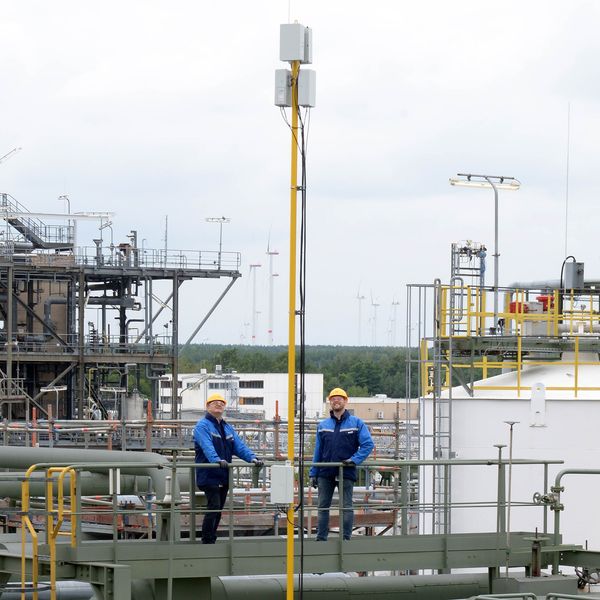Vodafone Germany said the new campus network will be ready by the end of 2024
German carrier Vodafone announced it is setting up a private 5G-based campus network for BASF Schwarzheide at the former’s Lausitz production site.
Vodafone said it will equip the production site with an “independent and highly secure” mobile communications infrastructure by the end of next year.
The telco noted that BASF Schwarzheide currently relies on a campus network and therefore operates independently of the public mobile network. This local network will bring extra-fast mobile communications specifically to company and production locations, Vodafone explained, adding that the company will be able to align and design the 5G network according to its own requirements.
In total, the partners are building six cell phone masts with state-of-the-art antennas to supply the entire factory premises with 5G technology. The company expects this new infrastructure to be particularly useful for monitoring and maintaining production facilities and optimizing production processes.
Vodafone and BASF had already tested the technology at the site in initial test runs and identified numerous areas of application. The partners have been recently carrying out tests in a selected area of the factory premises to improve, accelerate and make production processes safer. These tests included wireless sensors, 5G cameras and IT systems networked via mobile communications.
“As a digitalization partner for German industry, we support BASF in Schwarzheide in operating the local 5G network. In Schwarzheide, sensors, machines, robots and drones will soon be able to communicate with each other in real time. This makes BASF’s Lusatian production plant a pioneer in Europe’s process industry and can develop and implement new application scenarios,” said Alexander Saul, managing director of corporate customers at Vodafone Germany.
“With the expansion of the 5G campus network, we are taking the next important step in the digitalization of our location. This wireless technology opens new doors for us – on the one hand to make existing applications significantly more economical and on the other hand to enable applications that would not yet be foreseeable or conceivable today,” said Jürgen Fuchs, CEO of BASF Schwarzheide.
Last month, Vodafone Germany said its 5G network reached 90% of the country’s population.
Meanwhile, the operator’s 5G Standalone network (SA) currently serves 45% of the German population, the carrier added. Vodafone previously said that 5G SA technology will reach nationwide coverage by 2025.
Vodafone currently operates more than 26,000 mobile radio stations in Germany, including almost 15,000 5G stations.
Vodafone Germany had launched its 5G Standalone network last year in partnership with Ericsson, Nokia, Qualcomm and Oppo. For the 5G expansion, Vodafone is currently relying on frequencies in the 3.6 GHz, 1.8 GHz and 700 MHz bands in large urban areas, residential areas and suburbs and rural areas across Germany.

